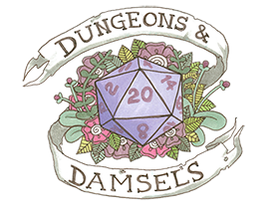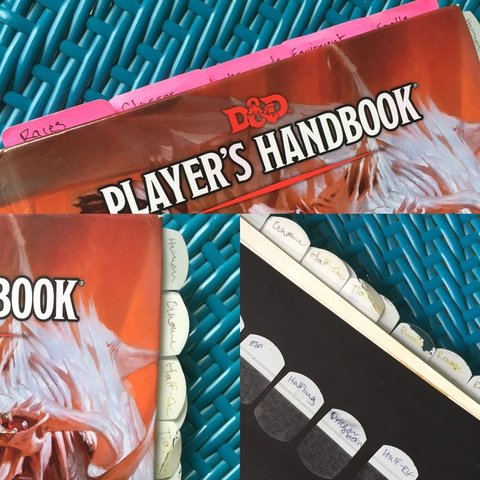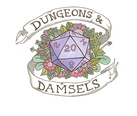Making the Game Your Own |
|
So you're starting a D&D group. That's amazing. You've invited your friends to play. You've decided to run a simple starter adventure, which you've read through. You've familiarized yourself with the rules. You've listened to D&D podcasts. And now, finally, the scheduling gods have aligned and you've scheduled the first meet up of your new D&D group. Uh, now what? Just know that you have options for your first session. Many, many options. We're going to talk about just one of those options: "Session 0." I hear people talk a lot about Session 0 online--what it is; why you need one; what the DM should cover. I've seen it described as everything from critical to a waste of time, but I'd say it's probably somewhere between the two extremes for most groups. So let's talk about it. Session 0 Session 0 is basically what you do before the first "real" session of the game. Under conventional wisdom, it's where you set the expectations for the gaming group going forward before anyone has even had a chance to roll some dice. Do you really need a Session 0? My group had a Session 0, but in retrospect, I'm not sure that was necessary. At that point we were all still testing the game--I didn't know if I'd like being a DM and they didn't know if they'd like being players. We had only 3 players and we spent 3 hours making 3 characters. One of the players did not continue coming after Session 0, citing many reasons, one of which being that the game felt "too confusing." And that is on me. I tried to teach 3 people who knew very little about D&D how to build characters from the ground up, and it was confusing. And even though I ran a Session 0, we added 3 different players later, none of which participated in a Session 0 and all of which fit in with the group no problem. Below I've listed some scenarios where I don't think a Session 0 is necessary, but the bottom line seems to be: if you're not sure there's going to be more than one session, you probably don't need a Session 0. (1) The group has all new players who have decided to "test" D&D and is doing so with pre-generated characters. If all of your players are new, and you invite them over to play a game, then you give them a lecture on your Game of Thrones inspired world and force them to create page long backstories, you're going to scare off these new people. In this situation, you want to hook people by having them play. Get this group at the table and playing so that they can decide they love D&D. Once they love it and decide they want a full campaign, then you can plan a session 0 where they all create their own characters. (2) The group has very experienced players and you have decided to DM a one-shot. Let's say you and your friends have been playing for a long time, but now you want to try your hand at DMing. If you're just DMing one session--no matter how different that session is from the normal DM's--there is no need for a session 0. Write a paragraph about the world and what everyone will be doing, send it to the players, and call it a day. (3) You've been gaming with the same group and plan to take on the mantle of DM, but you'll be playing in the existing world and you all already have your expectations aligned. (4) You're planning to play in a rotating group or some sort of D&D club. There are versions of campaigns where there are 30 or so players, but all of the players rotate in and out. Maybe even the DMs rotate. In that case, have your rules, expectations, schedules, etc. posted somewhere easily accessible to all parties, but don't bother attempting to get the whole group to attend a Session 0. Planning Session 0 Okay, you've decided you need a Session 0, and now you need to decide how you're going to do it. When people talk about Session 0's importance, they always talk about setting expectations. A Session 0, and the things discussed during it, should drive the game going forward. Setting Expectations Early When I planned my Session 0, I scheduled it as a brunch. I served mimosas and food and provided everyone with dice and character sheets to fill out. There were jokes and laughs, and it was fun. I wanted the atmosphere to be similar to a party--and that also set the expectations going forward. We always have drinks; we always eat food; we never take the game too seriously; we play fast and loose with the rules. But if that's not the game you want to play, think about how you structure Session 0. If you don't want people to eat during your games, don't order pizza. If you don't want people to drink, don't provide drinks. If you want to have Tuesday night games, schedule Session 0 for Tuesday night. If you plan to play at the local library, set Session 0 at the local library. It sounds like small stuff, but what you're trying to do is set a tone. The tone you create at Session 0 is the tone your players will expect going forward. Time Commitment Plan for Session 0 to be about as long as any session you would normally have (between 3 and 5 hours, usually). If you're doing character creation at Session 0 (and especially if you have inexperienced players), expect to spend 30 minutes to an hour just on creating each person's character. Then, at the end, you'll want to run at least one small encounter. But the actual session time isn't the only time commitment involved for the DM. If you have some experienced players, they may come to the table with some idea of what character they want. But if you have new players, you're going to have to help them create their characters. And that small encounter you should run? You also need to plan that. All said, you will probably have to spend about an hour doing some research on the D&D classes and then another hour planning the encounter. If you're planning on serving food at Session 0, factor in that time as well. And this time commitment? It's going to continue. You should talk to your players about scheduling. When are you going to play? How many times a month? What time commitment do you want from the players? There are no right answers to these questions--they depend on your party. Some groups play every week and some (like mine) meet once a month. Just remember, even if your players think they can commit to five hours every Tuesday night, that's not the only time commitment involved for the DM. Ask yourself whether you have the time to plan a session each week. Your Elevator Pitch Session 0 is when you need to give your elevator pitch for the world and the game. If you plan to run a game with a lot of intrigue and role-playing, this is the time to mention it. Use pop-culture and describe your game in terms that the players can understand. I told my players that everything in my game would be based on Disney characters and movies because I couldn't ever remember any of the official D&D lore. They were into it, but some people wouldn't be, and this is the time to find out. What you don't want is a player who hates role playing and complains about it every time it happens if you're planning a campaign that revolves around role playing. Speaking of, this is also the time to ask your players what they want. Do they want to kill things and get treasure? Do they want political drama? It's perfectly acceptable for them to not know--you'll find out more as you play. Table Rules This goes back to the tone you've established. My game has a pretty light tone, and I don't often do violent descriptions of combat. Even still though, D&D is at its heart a combat game, so if it happened, I don't think anyone would be shocked or surprised. But there's a specific thing we need to address here: sex. Look, in normal social interactions we would never have to tell people "don't bring up sex or rape fantasies." But I can't ignore the fact that one of the most common complaints women (and many men) give about D&D is that they tried to play and their character was sexualized or graphic descriptions of sex took place in game. It's also the one thing many people say must be brought up as a table rule in Session 0. You need to use your judgment on whether or not your players need to be told there will be no sex in your game. As the DM, you always have the power to shut that down if it arises at some later point. For whatever it's worth, I didn't tell my players there would be no sex in our game and we've yet to run into a problem. On the other hand, if you want to have sex in your game or plan to run a game set in a world where sex is used often, you must tell your players that before it comes up in game. Because sex should not be the norm in a a fantasy role-playing game. And because I would want to know as a player, so I could choose not to play in your game. Other things, like variant rules, can be brought up at your discretion if you think it's relevant to character creation. You could also just wait until the issue comes up at the table. I use a lot of variant rules in my games, but I always just teach them when they come up. Creating Characters If you're creating characters together at the session, you'll need to have ironed out what you expect from player characters. If you don't want anyone to play an evil character, this is the time to tell players. You'll also need to know the basics about all races and classes. For my Session 0, I created a small post-it for each class that contained bullet points on what each class could do at Level 1. At the very least, have your book well-tabbed so the information is easy to find. Short Encounter After players have spent literal hours creating a character, they're going to want to test it out. Your short encounter doesn't need to deal directly with the campaign you're eventually planning to run--you just need to give the players a chance to roll some dice. While you want the first encounter to be challenging and fun, you don't want anyone to die. So here are just a few monsters/ideas you can steal for a short combat encounter that shouldn't leave any players dead (though I guess I can't guarantee it): (1) Giant Rats. Have the party fight giant rats in a tavern basement or the basement of a local business owner. Give each person in the party their own giant rat to fight. Giant rats have a low AC and low HP, so the party should be able to deal with them pretty efficiently. And since you can have a bunch of them, it makes the fight feel interesting. (2) Cultists. Have the party fight cultists or bandits who come into the tavern. Or have them run into the cultists or bandits when they set out on the road. Use between 2-4, depending on how many players you have. Cultists will fight to the death, but they're not that tough. Bandits might run away once the party has taken enough HP off. (3)Skeletons. Skeletons in a graveyard work well for a starting fight because they're vulnerable to bludgeoning damage, and their only damage immunity is poison. There a very few first level spells that do poison damage, so that's not going to be of huge concern to a first level party. Use between 2-4, depending on how many players you have. (4) Zombies. Zombies have a very low AC and aren't at all hard to hit. The amount of HP they have, and the fact that under certain circumstances they may be able to get back up, makes them slightly more challenging. So if you do zombies, have no more than 2, depending on the size of your party. If you have a 3 person party, you may consider only having one. Session 0 Checklist Below, you'll find a checklist of things you need to cover during Session 0--and some things to think about as you do.
Post by Rachel Paxton. She DMed a Session 0 and thought it was pretty hard. Ask her questions on Twitter @rachpax.
0 Comments
Your comment will be posted after it is approved.
Leave a Reply. |
AuthorsWe're two D&D obsessed ladies who want to spread our love of the game to women and girls everywhere. Archives
August 2017
Categories
All
|



 RSS Feed
RSS Feed
